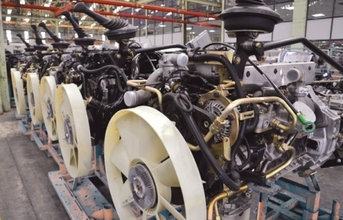
Effect on suppliers
The slowdown has led to widespread shrinkage of order positions for component manufacturers, and resulted in underutilised capacities, margin pressures and locked-in working capital. Smaller enterprises have been impacted further, due to additional factors such as over-dependence on a single customer who has started seeking alternative suppliers, entry of overseas suppliers, difficulty in accessing IP required to design and deliver newer subsystems and use newer technology, scarcity of skilled workers, managerial talent, and access to funds.
While there are several challenges present, a combination of carefully planned actions can help a supplier to survive the downturn and position it well to participate in the long term success of the Indian automotive industry.
Diversifying the risks
Several suppliers are overly dependent on a single OEM or Tier-1 supplier as customer, or a single product line or sales channel. In such cases, declining market share of that OEM has a direct, severe impact on the SME. The solution lies in selecting viable new business opportunities which can be addressed immediately, and with minimal additional investments. Immediate options are a push into aftermarket and retail sales, increasing exports, and developing non-automotive customers for applications which require only minor tweaks to existing processes and products, e.g. castings and sheet metal for off-road equipment.
Chasing OEM priorities
Established OEMs increasingly court alternative suppliers to reduce cost, while OEMs entering India bring in suppliers capable of meeting their requirements where Indian suppliers lack scale, product range or technology. To align with changing procurement priorities, operational excellence programs for higher reliability and lower effective cost, as well as entering multiple products lines, will help the supplier to support the OEM's interest of localising parts sourced from East Asia.
Emerging trends
Consumer preferences are changing rapidly, creating demand for new subsystems such as dashboard telematics, intelligent braking, and on-going trends such as light-weighting, which render obsolete some existing investments in older technologies and products. Addressing this rapidly shifting opportunity requires access to technology or process IP, which cannot easily be developed in-house. Beyond investing in product design and prototype development, suppliers have to actively seek collaborations (e.g. for infotainment and safety component design).


























